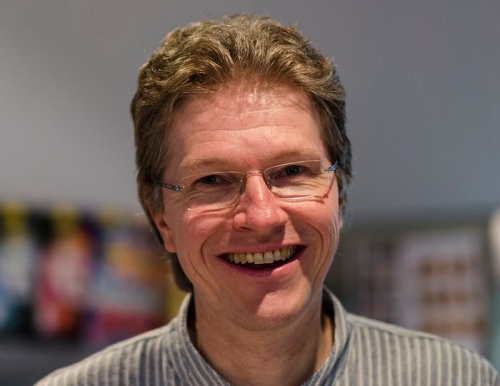After more than 31 years of work at ESO, Bruno Leibundgut will retire at the end of April 2025. Given the strong engagement between Bruno and the astronomical community, this will not only be a change for himself, but also for the ESO and the community.
Farewell to Bruno Leibundgut

Most of the astronomy community are well aware of Bruno's scientific stature and his many achievements. His multiple research contributions on Supernovae and Cosmology make Bruno an internationally recognised scientific luminary, leading to outstanding advancements in astronomy (let's not forget his contribution to the discovery of the accelerating Universe) and inspiring colleagues around the world. The very well attended conference on VLT, SUPERNOVAE, BRUNO @65 & H₀ @? held at the ESO Headquarters in Garching from 7 to 11 April 2025 was a testimony of the highest impact that Bruno had and still has in world-wide astronomy.
Beyond that, Bruno's service to ESO has left a very broad and deep imprint in the organisation. Among other duties Bruno has been engaged with the science side of the VLT from the very beginning. He served as VLT Deputy Programme Scientist from January 1995 to July 1998, and was actually responsible of its Science Verification. He came back to the scientific leadership of the VLT as Programme Scientist from August 2014 to April 2024 where he helped shaping the scientific performance and future of ESO's world-class optical/IR facility. Still on the VLT, Bruno led from July 1998 to April 2001 the VLT Data Flow Group, where together with the ESO colleagues, he set the first versions of the Data Flow System that we have today and that has been mimicked by most of the major astronomy observatories.
From September 2001 to February 2008 Bruno became head of the Office for Science, taking care of the scientific life inside ESO, and specifically supporting vigorous studentship and postdoctoral fellowship programmes. Those were the days where ESO embraced ALMA as its next major facility, and Bruno made sure that sub/millimetre scientific expertise would develop also inside ESO.
Last, but certainly not least, Bruno was the first ESO Director for Science, starting in February 2008 and for a 6 year period. With his huge experience and scientific standing, he defined that role as the one that sets the scientific agenda of the organisation, setting a very high standard for the position. I felt very fortunate when Bruno accepted my offer to become again Director for Science in his two last years of work at ESO. Collaborating with him so closely those last years has been an immense pleasure for me. Among his many contributions to the scientific agenda of ESO, I will underline his imprint in the setup of the Expanding Horizons process aiming at identifying the next ESO Programme after the ELT.
In this combination of roles, Bruno has been one of the most celebrated scientific faces of ESO. We owe him a lot, both as organisation and as members of the astronomy community. Free of managerial duties, Bruno will no doubt continue enjoying astronomy. Please join me in wishing him all the best in this new chapter of his life.
Xavier Barcons
ESO Director General
